#WATSON
Explore tagged Tumblr posts
Text

Sherlock Holmes Christmas card by Olivia Moy ( @luckychinacat ) (2019)
#sherlock holmes#illustration#christmas card#christmas#olivia moy#watercolor painting#mrs hudson#watson#doctor watson#john watson#dr john watson#221b#221b baker street
2K notes
·
View notes
Text
I do find it rather unfortunate, that of seventy-four thousand fics under the tag Sherlock Holmes/John Watson, 67,000 of them are specifically surrounding the BBC Sherlock series.
That's literally (over) ninety percent of all johnlock content right there
Though I do appreciate them in their own right,
Gimme more Victorian johnlock
Gimme more flowery language and old english
Gimme more period-typical homophobia (let me explain)
Give me "loving you would mean destruction for us both, but I'd gladly burn if it meant I remained by your side"
Give me devout adoration despite the consequences
Give me unconditional love in a world where it is deemed unholy
Give me hesitation and fear, because if one of us expresses our feelings and they are unreturned, then the other could simply turn me away and potentially even ruin my life and reputation, but if he loves me back then we might be able to be happy, together
Give me the dillema, to risk safety over happiness
Give me more Victorian johnlock please I beg
#sherlock holmes#john watson#holmes#watson#johnlock#sherlock x john#acd holmes#acd watson#granada holmes#victorian husbands#holmes/watson
609 notes
·
View notes
Text
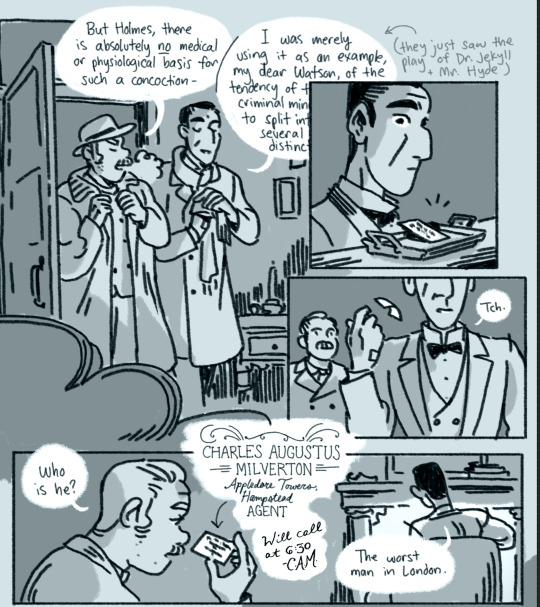
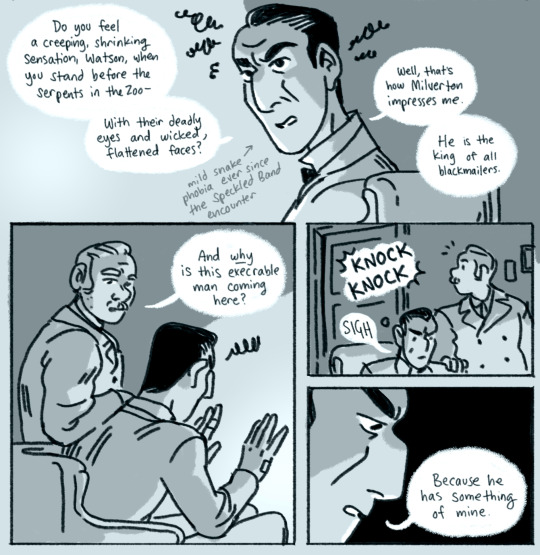


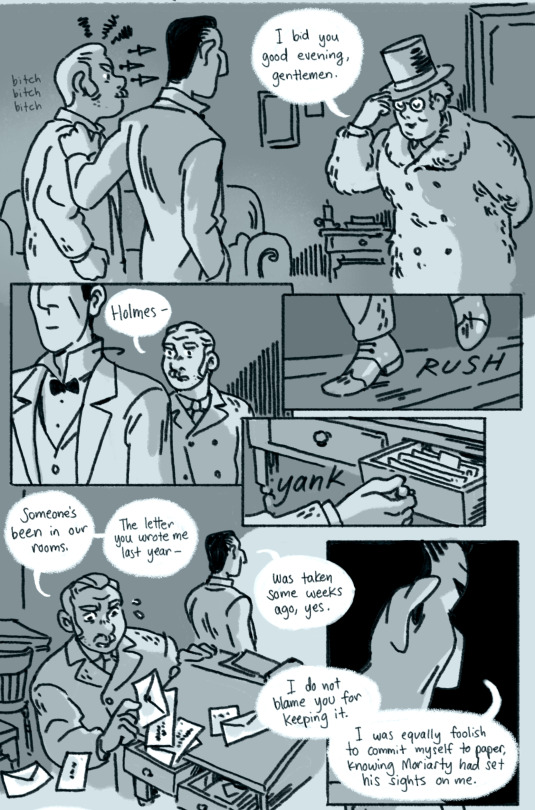
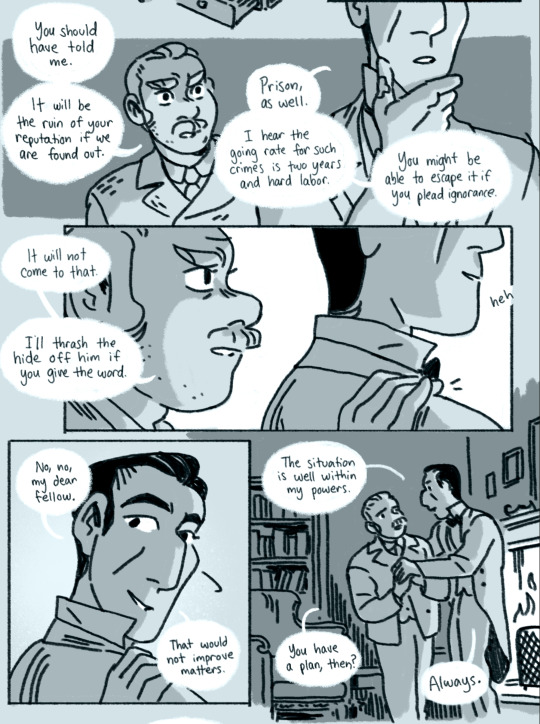

THE ADVENTURE OF CHARLES AUGUSTUS MILVERTON - part one of several, because this is one of my favorite Holmes stories! Ever since I read it I had a feeling there was something more...personal...going on with Holmes's hatred for Milverton than simply a principled stand against blackmail. A lot of this is directly pulled from the books but of course I took it in my own direction!
This is in the Watson's sketchbook series, and specifically references the Hound of the Baskervilles entry in that series :)
also thank you to my friend Phoenix for reading this when it was in sketch phase and reassuring me that it made sense!
Milverton design under the cut:
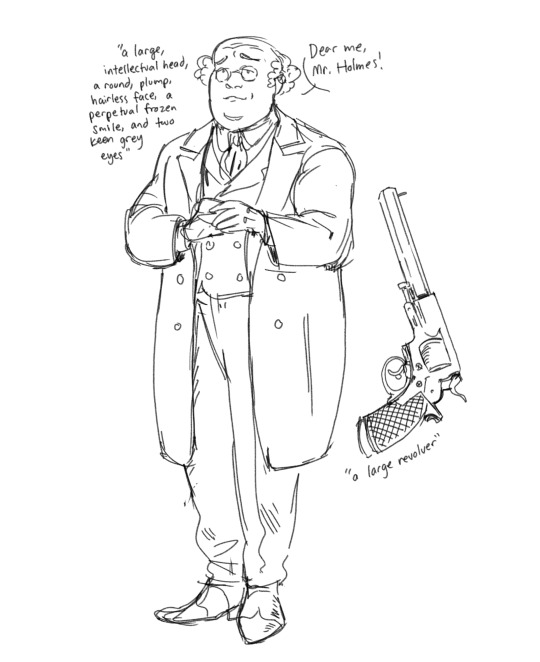
watson says he has a 'touch of Mr. Pickwick about him' so I tried to do Pickwick but...scary
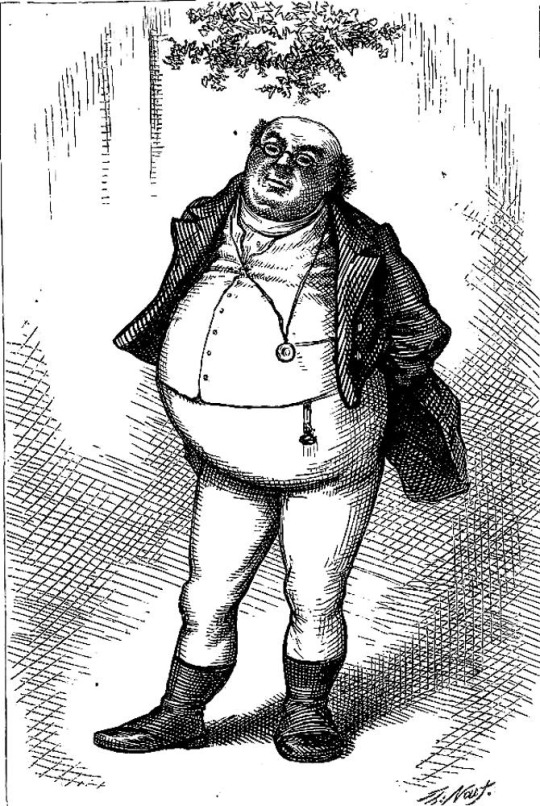
#Sorry I didn't draw Watson threatening to hit Milverton with a chair like he does in the book#but I got tired#watson#watsons sketchbook#my art#sherlock holmes#john watson#acd holmes
2K notes
·
View notes
Text
NOT NORMAL ABOUT THEM HOURS AGAIN
“Excellent, Watson! You are scintillating this evening." - Sherlock Holmes, the Missing Three Quarter
EXCUSE ME?? SCINTILLATING?? AS IN
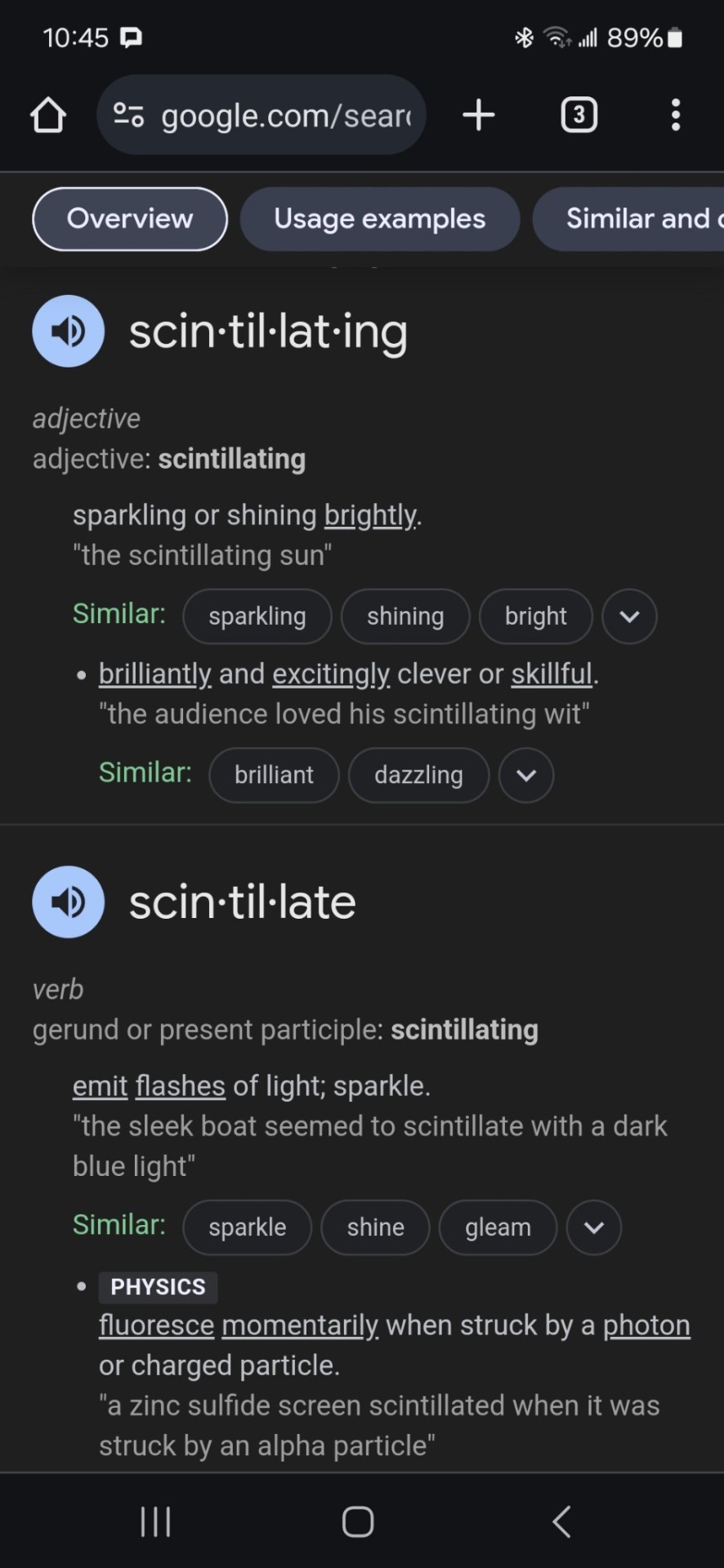
I am most decidedly NOT normal about this
#sherlock#sherlock holmes#the adventures of sherlock holmes#acd holmes#watson#john watson#holmes/watson#sherlock holmes/john watson#acd canon#acd sherlock#the missing three quarter#why are they like this
398 notes
·
View notes
Photo
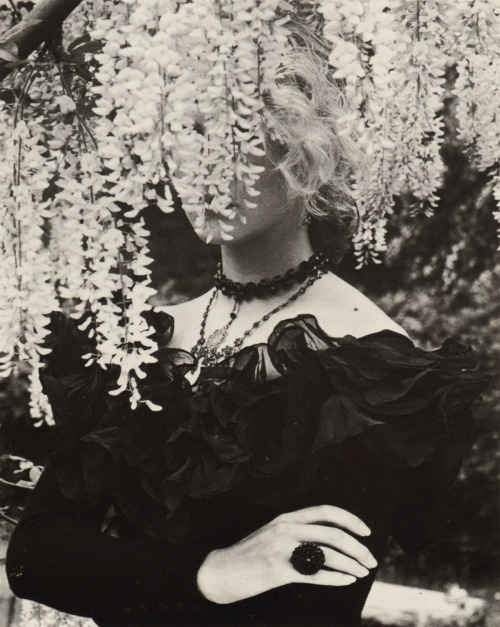
"Wisteria" by Albert Watson, 1985.
7K notes
·
View notes
Text


I must admit, all this sketching has immensely improved my skills.
More headshot sketches of both Sherlock Holmes and his intimate acquaintance and colleague Dr. Watson.
At this point I had fallen head over heels for David Burke’s Watson.
#granada holmes#sherlock holmes art#sherlock holmes#sherlock#watson#john watson#johnlock#acd sherlock holmes#david burke#jeremy brett#both of these gents I absolutely adore
875 notes
·
View notes
Text
Let them be content let them be cozy let them be happy

Also I'm very happy abt Holmes' face there, I think I did nice on the perspective - given that I struggle a lot w it
#you cant tell me Holmes doesn't just come unannounced and does this and neither of them say anything and they just savour the moment and#then they proceed to never talk abt it#let them cuddle#Sherlock Holmes#sherlock holmes fanart#acd sherlock#acd sh#acd books#acd holmes#john watson#johnlock#forever#acd johnlock#acd watson#Watson#dr john watson#acd sherlock holmes#victorian husbands
766 notes
·
View notes
Text

THE ADVENTURES OF SHERLOCK HOLMES
2.01 The Copper Beeches
#the copper beeches#granada sherlock holmes#sherlock holmes granada#sherlock holmes#doctor watson#watson
547 notes
·
View notes
Note
can we get a snippet of Dr Watson taking care of Sherlock? :>
“You were foolish—“
“Calculating—“
“Foolish!”
“I miscalculated,” you correct. “Or missed some variable. Being wrong, in some small way, is not the same as foolish. Truly Watson, to think you so against learning, improving oneself by accepting failures—“
“YOU BROKE YOUR TOES!”
“Just the one toe…”
“The important one.”
“I don’t discriminate on such things.”
Watson pushes you down to remain on the bed. “I need to bind it. How’s your pain?”
“Tolerable. Unless…”
“No—“
“Then do not ask.”
Your good doctor had kept you in bed, elevated foot and everything for far too long now. It had been nearly an hour.
There’s tea on your cupboard. Extra sugars. And the very best biscuits, the one Watson hoards for the longest of days.
“Watson?”
They hum a soft sound, an acknowledgment, as they bind your broken appendage with steady and careful hands.
“If I am forced to endure monotony, I shall demand you do it with me.”
Watson looks at you, over those steady shoulders. A small smile across their lips. “I shall remain by your side. For as long as… as you need me, Sherlock. I can promise you that.”
#… uh I don’t know why this isn’t just Watson taking care of MC…#my brain works in mysterious ways (after midnight)#u there#yes you#if it’s past midnight#do one thing that prepares you for bed#so you’re one step closer#when sleep comes#(also. is a toe an appendage? like… it makes sense no?)#(eh. what do I know.)#(I’ll go with it)#watson#sherlock holmes#doctor watson#john watson#jane watson
414 notes
·
View notes
Text

Newspaper 📰 🗞
#godspeed honestly with these watercolors#sherlock holmes#Sherlock#john watson#Watson#johnlock#sherlock x john#art#fanart#traditional art#watercolor#takes place in the 90s oe something#don't think about it too much#featuring Sherlocks awful haircut#a cat is there too#they're trying to find something in tgese newspapers but apparently can't#perspectives be damned I eyeballed it but it was late at night so it turned out wrong#first time I'm posting one of these iconic couch drawings even tho I nade some in the past
235 notes
·
View notes
Text

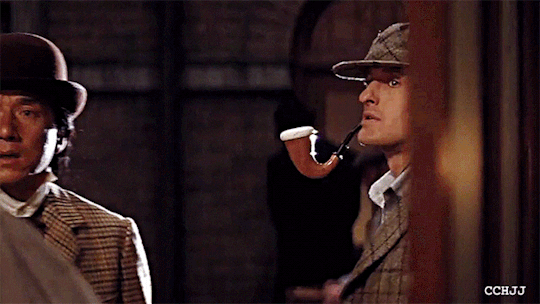
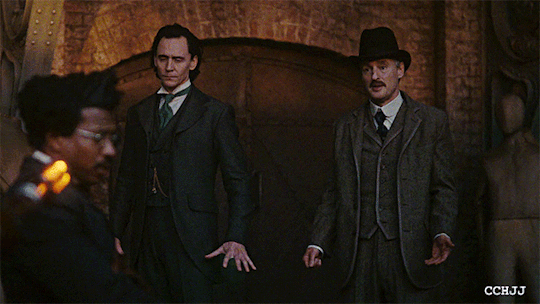

he really went from being Sherlock Holmes to being John Watson
#loki#shanghai knights#sherlock holmes#john watson#roy o'bannon#mobius#mobius m mobius#lokius#owen wilson#loki series#loki s2#loki season 2#holmes#watson#my gifs#gifs#gif#filmgifs#tvgifs#dailyloki#lokitvsource#mobius loki#loki mobius
1K notes
·
View notes
Text

The Case Of The Stolen Doctor (old repost)
217 notes
·
View notes
Text


aoiguuuuuug<- guy who is so normal about sherlock holmes
#gathering clips and . aough#jeremy brett#sherlock holmes#the adventures of sherlock holmes#sherlock holmes 1984#richies rubber room#holmes#watson
159 notes
·
View notes
Text
*average chronicler lies three times in their entries* factoid actualy just statistical error. average chronicler lies 0 times in their entries. Dr John Watson, who lies all the time and can't keep track of his lies which leads to a series of inconsistencies which can only be explained by his being an unreliable narrator and has lied One Thousand times, is an outlier adn should not have been counted
#the most unreliable narrator to ever narrate#i feel like I've been on an unreliable narrator rant about watson so this is me trying to tie it all up nicely#john watson#dr watson#watson#acd#acd canon#sherlock holmes
369 notes
·
View notes